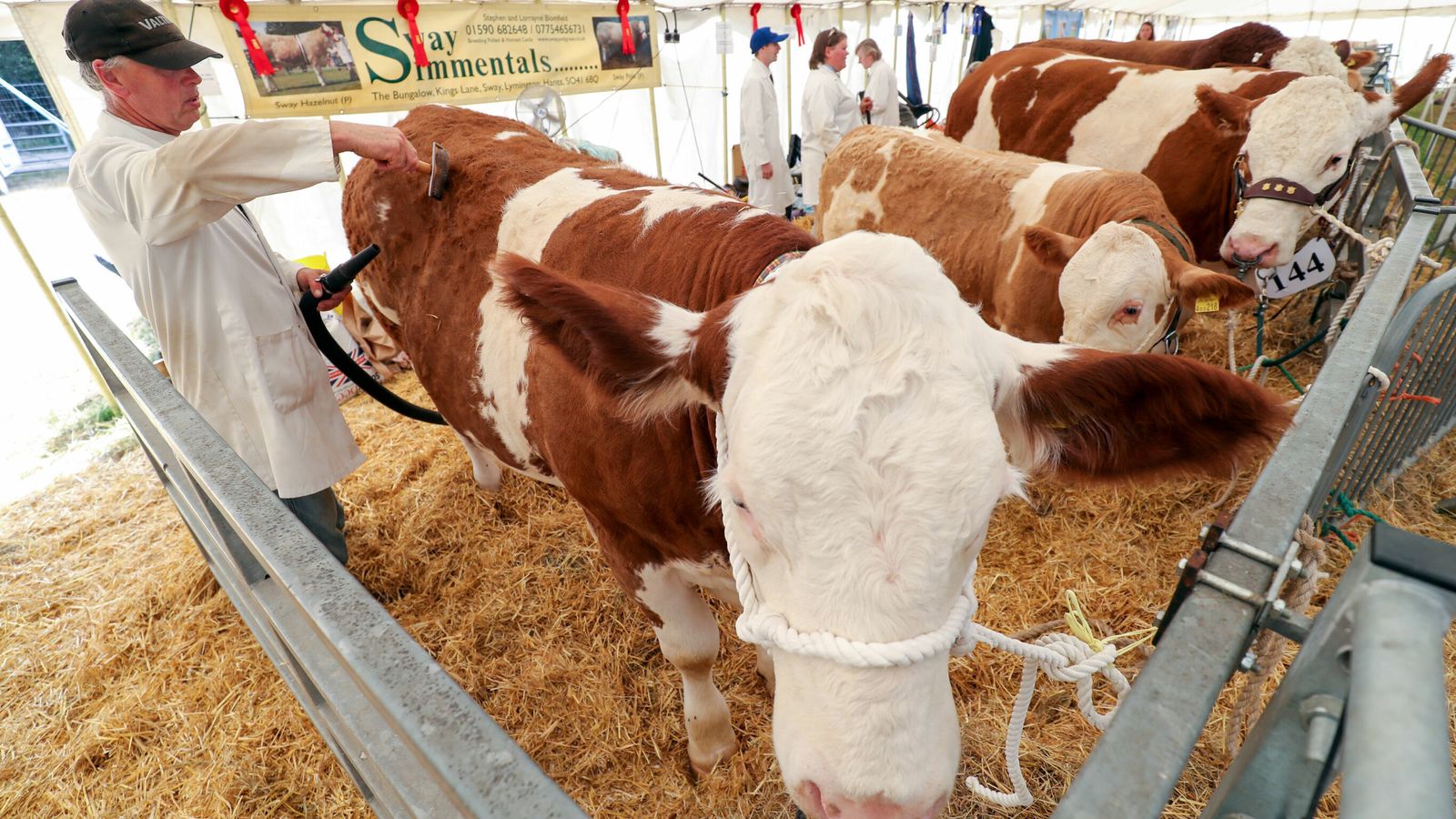In political terms, at least, there’s no doubting the significance of this moment: the first major trade deal signed since Brexit.
But what will the actual impact be?
The short answer is it’s hard to know for sure – and the government haven’t yet published the data which would allow us to decide.
Indeed, as of the time of writing they haven’t published any detailed documentation, save for a couple of press releases.
Whether this derives from the fact that the deal was only agreed late last night or because they’d rather take the plaudits for the agreement today and deal with the fallout at some other point in future is unclear.
However, this makes it tricky to come to concrete conclusions about what this deal means for you and me.
For all the fuss about trade deals, the reality is that they often make only a marginal difference to our everyday lives.
They might push down the value of some goods and somewhat increase the lot of exporters, but the net impact is often miniscule.
So the fact that the government’s own scoping exercise for this deal worked out that it might only add 0.02% to Britain’s economic output in the long run is not quite the bombshell some people might have you believe.
Sure, it’s a tiny number, especially given most economists think Brexit-related trade costs could end up reducing our national income by 1-2% in the long run.
And the figure touted by the government today about the potential savings for consumers from cheaper imports is similarly piddling: £34m a year (it equates to about £1.33 per household, or 0.004% of total household spending).
But the meaningless of these “big” numbers shouldn’t detract from a couple of more significant points.
The first is that these deals often take a long time to bear fruit, but can shift patterns of trade significantly, and right now UK trade with Australia is far, far lower than it used to be.
In part this reflects the fact that Australia used to be a British colony and part of the sterling area, which locked it into economic union with Britain.
But in part it is because there have, more lately, been tariffs and quotas on goods passing between Australia and Britain, a kind of trade friction which increased when Britain joined the European Union.
Put it this way: back in the 1950s about one in eight (12.5%) of British exports went to Australia.
As of a few years ago this had fallen to about 1.6%.
Removing Britain’s tariffs with Australia – which is the main point of this deal – will not change these numbers dramatically overnight.
Indeed, these days given tariffs are pretty low around the world, trade depends rather more on other factors (distance of travel, availability of cheaper, closer alternatives) than on tariffs.
Even so, right now Australia isn’t even in the top ten of countries exporting agricultural, food and drink products into Britain (current leader: Netherlands, then Ireland then Germany).
This deal may make a difference.
Why? That comes down to the second key point.
While trade deals don’t tend to shift GDP all that much they can make a big difference for various sectors.
Some will win and some will lose.
And to judge from the admittedly scant information we’ve received thus far, it looks rather as if this deal prioritises freedom of movement between Australia and Britain over the UK’s agricultural sector.
At present, imports of beef and lamb – among the most heavily protected of UK farming products – are subject to quotas, above which tariffs are imposed.
The UK government has assured farmers that although these quotas will be removed in this Australian deal, that will happen gradually over 15 years.
But delve into the detail and you see a somewhat different picture.
According to numbers released by the Australian government (as I say, the UK has provided very little thus far), the quotas on Australian beef imports into the UK will go up from just under 5,000 tonnes at present to a whopping 35,000 tonnes immediately after the deal is signed, before increasing in the following years and then melting away entirely.
The increase for sheep meat is also large, if not sevenfold, up from just over 15,000 tonnes to 25,000 tonnes.
The point here is that for all the UK government’s insistence that the process will be very gradual, the signs are that the raising of quotas will actually be quite abrupt.
On the flip side, all the current food standards which apply in the UK will remain in place: so no hormone-fed beef, for instance.
Will that mean Britain will have an immediate influx of Australian beef and lamb? Probably not.
Because it turns out Australian beef and lamb imports are currently coming in below even those low current quotas.
Australian farmers are, as things stand, quite happy to focus their attention on closer markets in Asia than sending their products around the world – regardless of price.
Whether this changes remains to be seen.
The quid pro quo for this agricultural offer is that Britons will get immigration rights in Australia that go beyond anything any country in the world save for New Zealand has achieved.
At present, Britons under 30 can only get a two-year visa in Australia if they commit to doing agricultural work for a few months – a controversial system.
In future, any Briton under 35 will be able to apply for a three-year visa without that agricultural stipulation.
Moreover an economic interest test Australian firms previously had to apply is to be removed, meaning those firms don’t have to prioritise hiring Australian nationals.
This is no small achievement, given Australia has always tended to be extremely reluctant to loosen its visa rules.
It looks like a win.
But Australian farmers will look at the agricultural rules and see that as a clear win for them.
Which brings us to the broader and more important issue.
The UK has struck a clear note here: that it is willing to allow its farmers to face more competition (potentially putting some out of business) in favour of more opportunities for young professionals.
Squint your eyes and you can see the beginnings of a broader policy emerging.
For decades the UK’s farming sector has been protected by the subsidies and trade barriers of the European Union.
Since Britain left there has been a nagging question: would the government continue to protect farmers or would it subject them to more competition and less support?
It seems we now have an answer.
That this has happened with so little debate thus far about the future of the agricultural sector is somewhat startling.
Many farmers voted for Brexit.
Would they have voted for this trade deal too – especially given it lays down a pattern for future deals?
As I say, much of the above is an attempt to read between the lines, based on the scant detail thus far released.
And these deals do not change matters overnight.
But as the decades unfold, they irretrievably shift the balance between different sectors of British society.
So this matters.






















